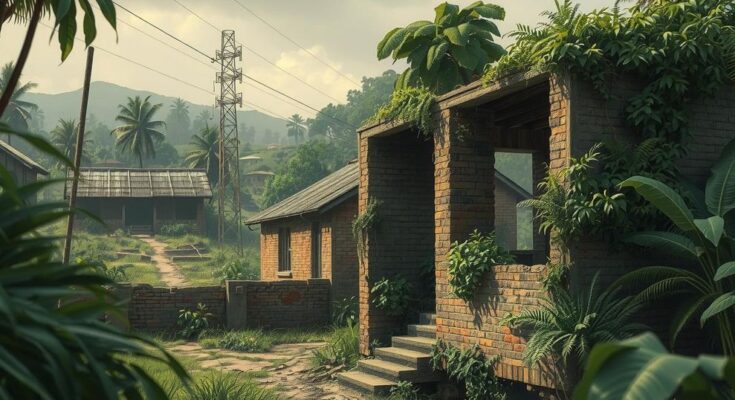The Rwandan-backed M23 rebels have ignored ceasefire calls from Congo and Rwanda, capturing the strategic town of Walikale. This advance raises concerns about the potential for a wider regional conflict. The rebels demand direct dialogue with the Congolese government to address governance and ethnic-related issues at the center of the conflict.
The M23 rebels, backed by Rwanda, have dismissed the recent calls for a ceasefire from Congo and Rwanda. Reports indicate that the group’s leader stated that these appeals are of no concern to them as they continue their military advance, successfully taking control of the strategic town of Walikale, which serves as a crucial location in the region.
Walikale is significant due to its mineral wealth and its position connecting four eastern provinces. The rebels have reached this town, the farthest west they have advanced since January, following their capture of two major cities in eastern Congo. This conflict has historical roots tied to Rwanda’s 1994 genocide and is being described as potentially escalating into a wider regional conflict involving neighboring countries.
Corneille Nangaa, head of the Congo River Alliance, emphasized, “We are Congolese who are fighting for a cause” and indicated that the details of the ceasefire discussions did not address their underlying issues. The situation remains tense as local leaders demand a direct dialogue with the Congolese government, highlighting key issues of governance and ethnic tensions. Understanding the dynamics of this evolving conflict is crucial given its historical context and the involvement of multiple nations.
In summary, the M23 rebels have escalated their military operations in eastern Congo, dismissing ceasefire appeals amid significant territorial gains. With calls for direct dialogue from rebel leaders and potential regional implications, the conflict reflects deep-seated issues rooted in historical grievances and geopolitical complexities. The situation continues to evolve, signaling possible repercussions not only for Congo but also for regional stability.
Original Source: www.straitstimes.com




